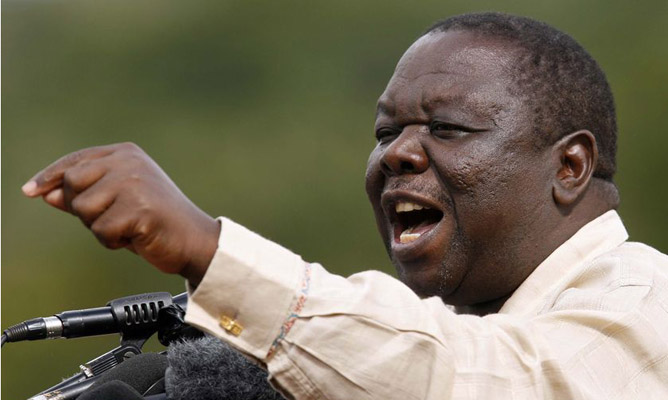
ZIMBABWEAN opposition parties must participate in elections than grumble from the sidelines, a senior United States Congressman said this week.
BY RICHARD CHIDZA
In what seemed to be confirmation of the US’s growing displeasure at opposition strongman Morgan Tsvangirai’s leadership style, Gregory Simpkins, a director in the Subcommittee on Africa, Global Health, Global Human Rights and International Organisations, said local opposition parties cannot criticise a system that they were not part of.
Tsvangiria’s MDC-T party has declared it will not take part in any polls without electoral reforms amid reports that the veteran trade unionist had fallen out of favour with most of his party’s Western funders.
“Oftentimes we have heard the opposition saying it is tough to compete, they have to find a way of being effective rather than just saying it is too tough to compete so we are not going to take part. If you do not take part in an election process, how can you criticise something that you did not even test?” Simpkins queried.
“When you test the process you can say we tried to register our candidates or observers were turned away, you can point to examples. If you are not a part of it at all, then it is as good as there is no opposition.”
Tsvangirai has been battling to ward-off criticism of his decision with accusations he literally donated 16 parliamentary seats to Zanu PF in last month’s by-elections triggered by his recall of “rebel MPs”.
Simpkins is part of a two-man US Congress delegation currently in the country on an “investigatory mission” to find ways of mending relations between Harare and Washington.
- Chamisa under fire over US$120K donation
- Mavhunga puts DeMbare into Chibuku quarterfinals
- Pension funds bet on Cabora Bassa oilfields
- Councils defy govt fire tender directive
Keep Reading
“For us sometimes the Democratic Party or the Republican Party is successful, sometimes they are partially successful. When we lose we do not take to the streets, we do not always go to the courts, we do not get angry, but we go back, consider what happened and prepare for the next election and that is what you have to do,” he said.
He also said the US political system was not built on personalities.
“However, when you start a political party in a country that is relatively new, very often the personalities override the ideology of the party, people vote for the person, ethnic groups. You feel that you started something and think that you best understand how things are supposed to be done, but over time you realise that does not work,” he said.
“It takes time and African countries are not going to do that overnight either. It takes time for people to realise that it is not all about me.
“I think there is a lot of frustration on losing elections and the thinking that the people leading the party are not serving their interests so they leave thinking they can do it better.”
He said it was important for leaders who would have failed in elections to give way for others to try.







